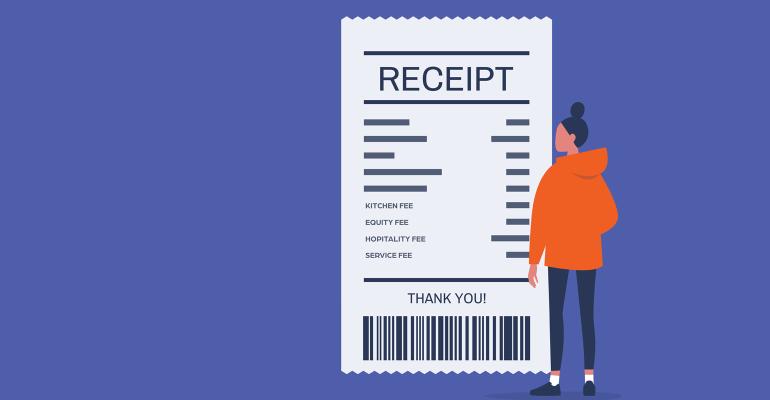Over the past several years, restaurants have increasingly begun to use surcharges as a tool to keep menu prices down while battling food and labor costs. Last fall, the Federal Trade Commission proposed a ban on “junk fees”, or misleading consumer charges that included, among other things, airline, hotel, and concert tickets, as well as restaurant fees.
Although that junk fee ban has not yet gone into effect, the FTC held an informal hearing on the proposed legislation at the end of April, during which representatives for the restaurant industry argued against restaurant bill surcharges and delivery fees being swept up into the bill with concerns about Ticketmaster and airline price gauging.
“The sweeping nature of the FTC proposal on the restaurant industry is the epitome of a solution in search of a problem,” Sean Kennedy, executive vice president of Public Affairs at the National Restaurant Association, said in a statement. “Customers recognize that some charges on a bill are absolutely predictable and reasonable.”
While the federal rule continues to undergo the legislative process, individual state governments have introduced their own version of the legislation, including California and Illinois. While California signed SB 478, a ban on “drip pricing” and junk fees, into law last fall, it was not until recently that restaurants were confirmed to be included in the junk fee ban, alongside hotels, concert, and sports venues. The law, which goes into effect on July 1, includes restaurant service and delivery fees and surcharges, the state attorney general ruled this week, as first reported by the San Francisco Chronicle.
Meanwhile, in Illinois, the proposed Junk Fee Ban Act has just passed in the Illinois State House of Representatives and will go on to the Senate next, and then on to Governor JB Pritzker’s desk for signing. If the bill is signed into law, it will go into effect in Jan. 2025, and will ban hidden or additional fees from restaurants, concert tickets, rideshare apps, and more. State legislators emphasized that an Illinois family of four would save an average of $3,000 per year if fees and surcharges were bundled in with the original price of goods.
On the federal level, the FTC estimates that implementation of a junk fee ban can cost business owners up to $3.5 billion to implement, or about $5,000 per restaurant.
“Right now, order one pizza or 15, and you only pay one delivery fee,” Jeffrey Gosnear, president of Grotto Pizza in Del. told the National Restaurant Association. “If we have to put the cost of delivery in the menu price, when you order more, you’re going to be paying way more than if we just charged a delivery fee.”
Contact Joanna Fantozzi at [email protected]





